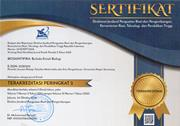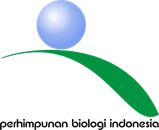Technological Pedagogical and Content Knowledge of Biology Prospective Teachers
(1) Biology Education, Faculty of Teacher Training and Education, Universitas Riau
(2) Biology Education, Faculty of Teacher Training and Education, Universitas Riau
(3) Biology Education, Faculty of Teacher Training and Education, Universitas Riau
Abstract
This research was conducted for analyzing Technological Pedagogical and Content Knowledge (TPACK) of biology prospective teachers in Riau Province. The study was carried out to fulfill Indonesian Government’s policy on Indonesian Qualification Framework (IQF) 6-Level. This development research aimed to analyze, design and develop a model to enhance the competency and competitiveness of Education College graduates to meet their professional, social and industrial needs. This paper discussed a preliminary study of the developed models for strenghtening the prospective teachers from Biology Education Departement, conducted through a survey of 243 students from four different colleges of education in Riau Province. The data were collected through a test and interview. The instruments used contained seven variables of knowledge, namely Technology, Paedagogy, Content, Technological Paedagogy, Technological Content, Technological knowledge and TPACK. The instruments was improved through their validity and reliability test. The TPACK performance of Prospective Biology teachers seemed low. Based on the need analysis two products will be generated. First, a lesson design and the second was a work books. This study had an implications for increasing the competence of biology education graduates. The lesson design and competency test instruments could be used for College of Biology Education and teacher professional education in developing competency test for selection system. The TPACK workbook could be used as teacher enrichment in sustainable profession development such as classroom action research, learning innovation contest, and science teacher olympiad.
Keywords
Full Text:
PDFReferences
Abbitt, J. T. (2011). Measuring technological pedagogical content knowledge in preservice teacher education: A review of current methods and instruments. Journal of Research on Technology in Education, 43(4), 281–300.
Goldey, E. S., Abercrombie, C. L., Ivy, T. M., Kusher, D. I., Moeller, J. F., Rayner, D. A., … Spivey, N. W. (2012). Biological inquiry: A new course and assessment plan in response to the call to transform undergraduate biology. CBE Life Sciences Education, 11(4), 353–363.
Goodwin, A. L., Smith, L., Souto-Manning, M., Cheruvu, R., Tan, M. Y., Reed, R., & Taveras, L. (2014). What Should Teacher Educators Know and Be Able to Do? Perspectives From Practicing Teacher Educators. Journal of Teacher Education, 65(4), 284–302.
Koh, J. H. L. (2013). A rubric for assessing teachers lesson activities with respect to TPACK for meaningful learning with ICT. Australasian Journal of Educational Technology, 29(6), 887–900.
Loughran, J. (2014). Professionally Developing as a Teacher Educator. Journal of Teacher Education, 65(4), 271–283.
McConnell, T. J., Parker, J. M., & Eberhardt, J. (2013). Assessing Teachers Science Content Knowledge: A Strategy for Assessing Depth of Understanding. Journal of Science Teacher Education, 24(4), 717–743.
Mishra, P., & Koehler, M. J. (2006). Technological pedagogical content knowledge: A framework for teacher knowledge. Teachers College Record, 108(6), 1017.
Nitko, J. A. (2004). Educational Assesment of Students. Newyork: Merril
Ridlo, S. & Alimah, S. (2013). Competency and Conservation-Based Strategies in Biology Learning. Biosaintifika: Journal of Biology & Biology education, 5(2), 121-129.
Ridwan & Sunarto. (2007). Pengantar Statistika untuk Penelitian Pendidikan, Sosial, Komunikasi, dan Bisnis. Bandung: Alfabeta.
Sancar-Tokmak, H. (2013). Effects of video-supported expertise-based training (XBT) on preservice science teachers self-efficacy beliefs. Eurasia Journal of Mathematics, Science and Technology Education, 9(2), 131–141.
Sancar-Tokmak, H., Surmeli, H., & Ozgelen, S. (2014). Preservice science teachers perceptions of their TPACK development after creating digital stories. International Journal of Environmental and Science Education, 9(3), 247–264.
Walsh, J. P., Sun, J. C. Y., & Riconscente, M. (2011). Online teaching tool simplifies faculty use ofmultimedia and improves student interest and knowledge in science. CBE Life Sciences Education, 10(3), 298–308.
Williams, J. (2014). Teacher Educator Professional Learning in the Third Space: Implications for Identity and Practice. Journal of Teacher Education, 65(4), 315–326.
Refbacks
- There are currently no refbacks.

This work is licensed under a Creative Commons Attribution 4.0 International License.



